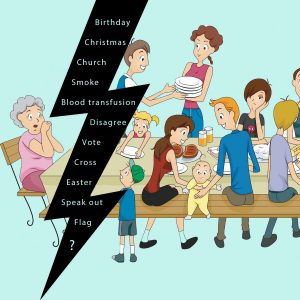 The Watchtower elders’ manual, Shepherd the Flock of God, 2019 edition, Section 12, contains a long list of “offenses that may require review by a judicial committee. Of course, this list is not comprehensive. There may be other matters that would also merit the attention of a judicial committee.” (12:2)
The Watchtower elders’ manual, Shepherd the Flock of God, 2019 edition, Section 12, contains a long list of “offenses that may require review by a judicial committee. Of course, this list is not comprehensive. There may be other matters that would also merit the attention of a judicial committee.” (12:2)
I will list them for you, along with the subparagraphs within Section 12 where they can be found. Then I’ll make specific comments regarding a few of them.
- Sexual immorality (definitions and examples given) 3-9
- Adulterous marriage (by person not scripturally free to remarry) 10
- Child abuse 13
- Gross uncleanness or uncleanness with greediness 14
- Intimate fondling 15.1
- Immoral conversations over phone or internet 15.2
- Viewing abhorrent forms of pornography 15.3
- Misuse of tobacco or drugs 4
- Extreme physical uncleanness 5
- Brazen conduct 16
- Unnecessary association with disfellowshipped or disassociated individuals 17.1
- Dating though not scripturally free to remarry 17.2
- Drunkenness 18
- Gluttony 20
- Stealing, thievery 21
- Deliberate, malicious lying, bearing false witness 22
- Fraud, slander 24
- Reviling 29
- Obscene speech 30
- Greed, gambling, extortion (including continued employment involving gambling) 32
- Refusal to provide for family 35
- Fits of anger, violence, domestic violence 36
- Professional boxing 37
- Manslaughter 38
- Apostasy 39
- Celebrating false religious holidays 1
- Participating in interfaith activities 2
- Deliberately spreading teachings contrary to Bible truth 3
- Causing division, promoting sects 4
- Employment promoting false religion 5
- Spiritism 6
- Idolatry 7
Note the degree of regulatory involvement the Watchtower legal system exercises over Jehovah’s Witnesses and the degree of judicial authority granted to the congregational elders to enforce these regulations.
For example, addictive use of tobacco can lead to disfellowshipping: “…a judicial committee is required for a practice of abusing addictive drugs, including betel nut, marijuana, and tobacco.” (12:15.4)
The elders can determine whether or not a divorced Witness is “scripturally free to remarry” or even date (based on their determination of the sexual activity of the former spouse) (10; 16)
Even if a Witness wishes to remain a Jehovah’s Witness, the elders are even allowed to decide that a person has chosen to disassociate from being one if he or she:
- Joins another religious organization and makes known his intention to remain with it 18:2
- Willingly and unrepentantly accepts a blood transfusion 3
- Takes a course that violates political or governmental neutrality in violation of Watchtower rules 18.4
Why is that important? Because any Jehovah’s Witness who refuses to shun a disfellowshipped or disassociated Witness by having “unnecessary association” with them are themselves in danger of being disfellowshipped! (17.1)
Note also how pervasive is the Watchtower’s definition of “apostasy.” (39) It includes such things as putting up a Christmas tree or hunting Easter eggs (39.1) and extends to voicing any disagreement with what the Watchtower considers “Bible truth” (39.3) Any of these things can lead to a Witness being removed from the congregation, completely shunned, and (according to Watchtower teaching) losing any chance at everlasting life unless they repent.

Leave a Reply
Be the First to Comment!